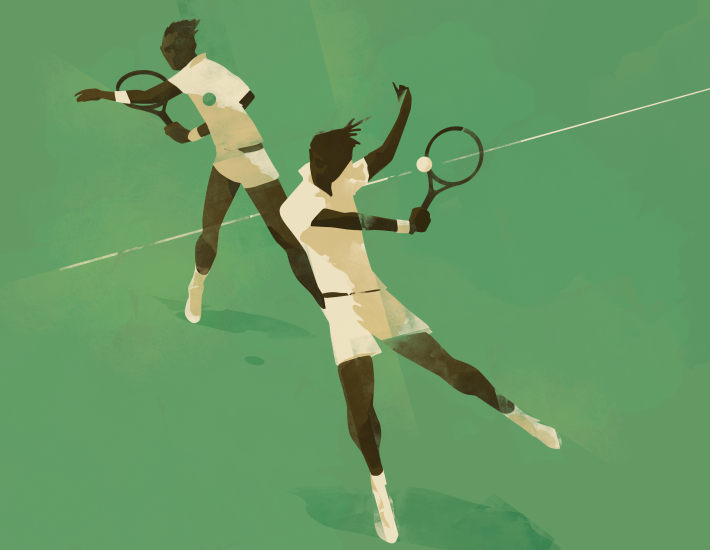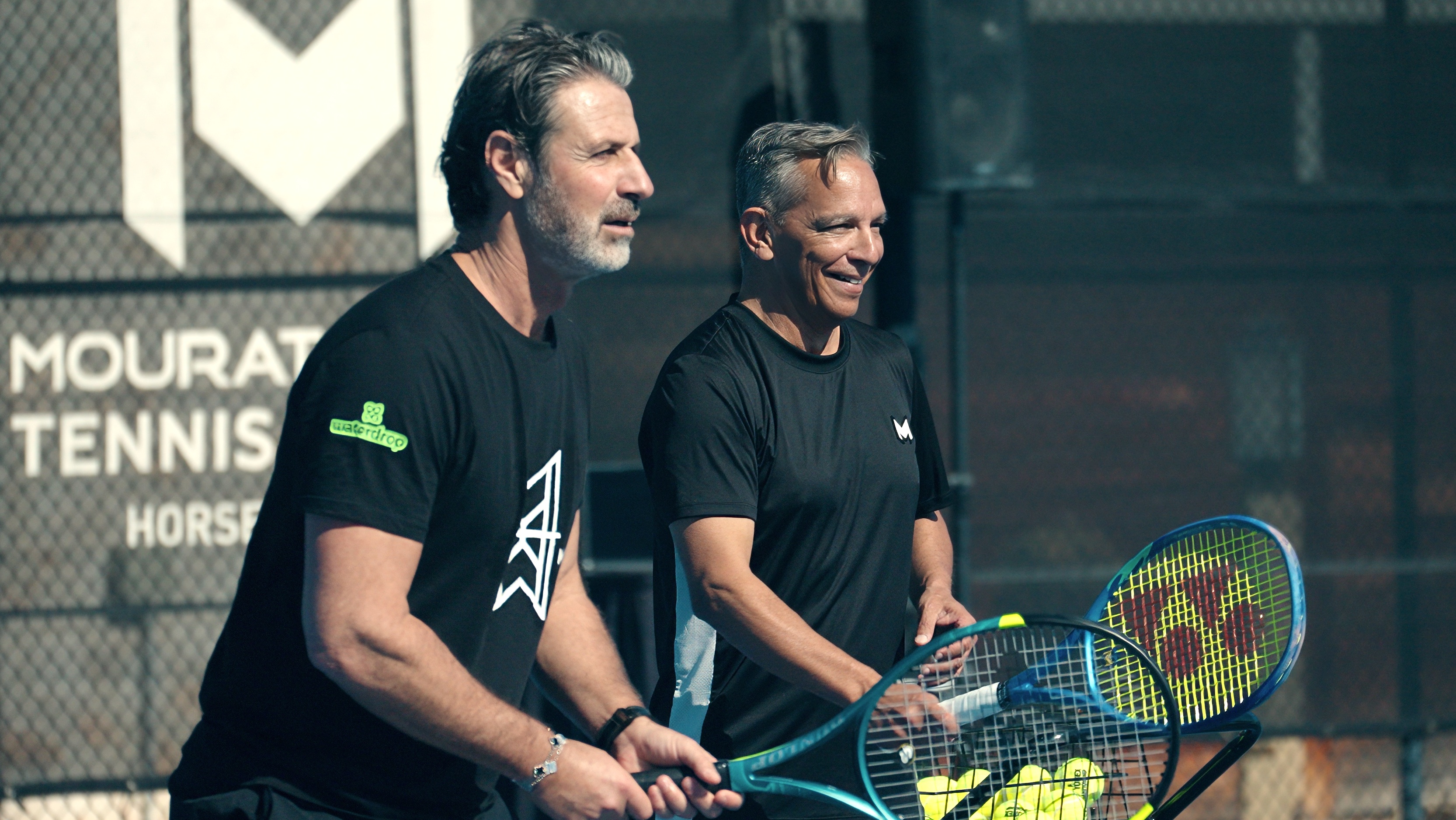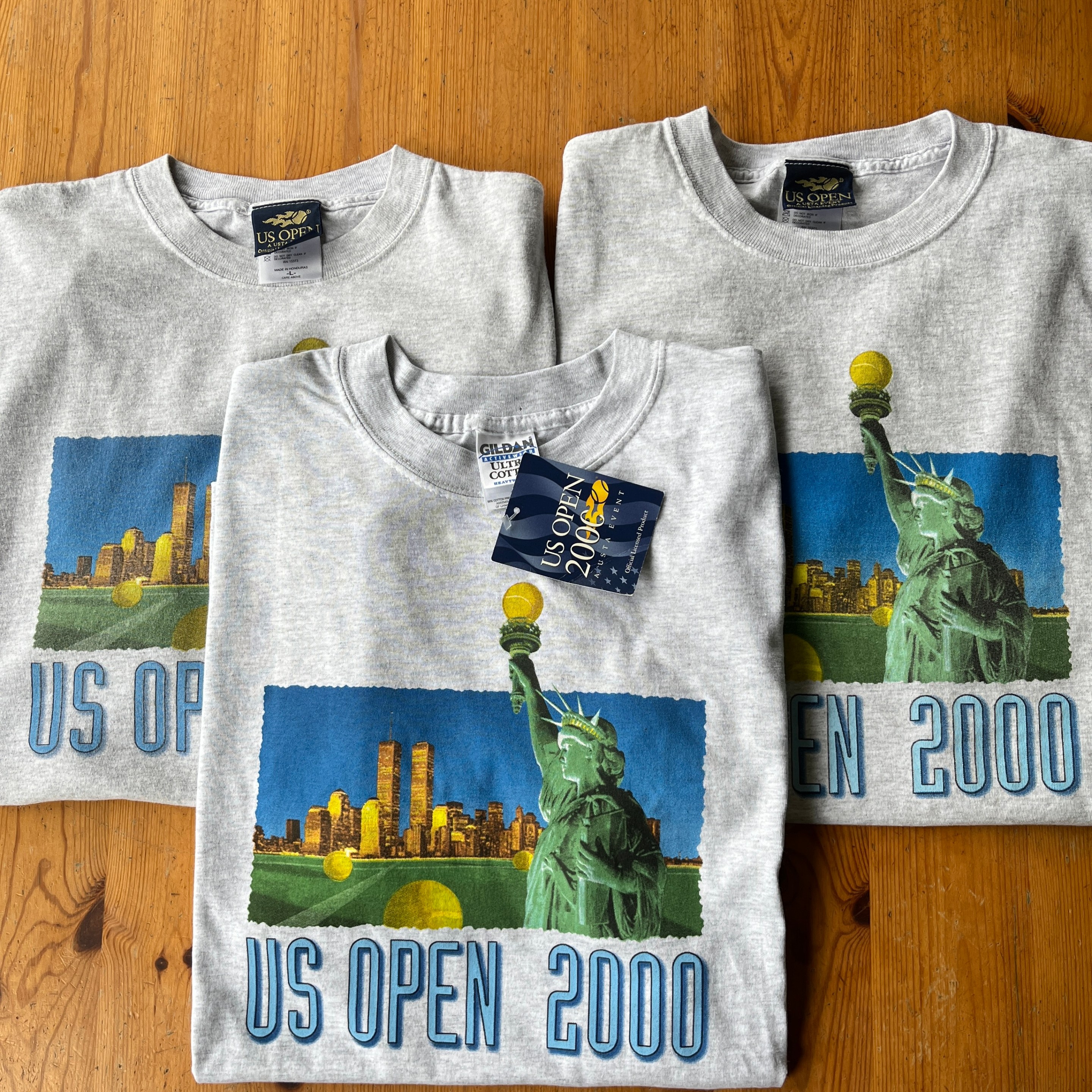
By Sebastian Cirin
Illustration by Mads Berg
Sweden has long punched above its weight in men’s tennis—a nation of 10 million having produced the likes of Bjorn Borg, Stefan Edberg, and Mats Wilander. Even Thomas Johansson, who peaked at No. 7, scooped up an Australian Open trophy in 2002. But the country has fallen off the tennis map of late, the mid-2000s run to world No. 4 by Robin Soderling being the only top 10 appearance by a Swede in the past decade.
With the early retirement of Soderling, Elias and Mikael Ymer have suddenly become Sweden’s best hope for a return to glory. The brothers, who are 21 and 19, respectively, hail from Skara, a small and ancient town in the western part of the country. But their story doesn’t start there.
Their father, Wondwosen Ymer, migrated from Ethiopia to Sweden at 18 to avoid being dragged into his native country’s civil war. There, he met his future wife, Kelemework, an Ethiopian medical student who had settled in Sweden when the civil war ruined her prospects of practicing medicine back home. Now two of their sons have become the biggest names in Swedish tennis.
It’s possible that the Ymers’ success in tennis will inspire more Ethiopians to pick up a racquet, but for now there seems to be no media interest in them there, the brothers said, likely because they were born and raised in Sweden. But the boys said they often think about how different their lives could have been if their family never emigrated. “We would have been runners. We often think about that. We would not have been the same people if we grew up there. It’s not at all the same. Everything is about where you are born—that is something you can never change,” Elias said.

Ethiopia has always been a running nation, and Wondwosen Ymer was a former member of the Ethiopian national team and wanted the same for his sons. But the sport wasn’t a fit: “To be runners was always the goal, but I got too nervous, I couldn’t handle the starts,” Elias said.
Of the brothers, it is Elias who has spent the most time in Ethiopia. “I liked it down there. People exercise in the mornings, everyone is outside. In Ethiopia, people were very nice, it felt good. Even though they may not have everything, everyone was happy. I enjoy it,” he said.
But as it became clear that his sons wouldn’t run in his footsteps, tennis piqued Wondwosen’s interest. “Our father had Eurosport, and they showed a lot of tennis and he really liked it, so he said, ‘My children are going to play tennis,’” Elias said. “We did almost every sport, but I got to be really good at tennis. We practiced a lot and I won the first tournament that I played in. It felt like we lived at the tennis courts—we practiced together every single day.”
The brothers won early and often, from national championship titles at the ages of 10 and 12, respectively, to every age category through international juniors, culminating with top five world rankings for both. “I’m glad that I am two years younger and we didn’t have to play in the same class,” Mikael said. “That meant we could both go out and win. If it were only a one-year difference between us, it would just have been one of us winning. But now we could both do well, each winning national championships.”
While their success on the court seemed to come easy, off the court it was a grind. “When we played these junior events, we never slept in hotels; it was either a hostel, sleeping in the car, or camping,” Elias said.
Elias made his professional debut at the age of 16 and Mikael when he was 15, around the time Elias had started to climb the rankings by winning ITF Futures titles.
The more the brothers played, the higher the expectations became. With few up-andcoming Swedish players in the hopper, the media dubbed them the future of Swedish tennis. “When we were 15 to 17 years, we were the number one and two in Sweden because there was no one else,” Elias said. “It was only Soderling up there, and when he retired, I suddenly became the number one in Sweden. The first time I really realized this was when I played the Stockholm Open and went from never having played a match on the ATP Tour to suddenly being on the posters. It was a bit weird.”
There is still a long way to go for the brothers in their pursuit of ATP glory. Despite being the best players in Sweden, at the end of 2017 Mikael’s ranking was 397 and Elias’ 202. What lies ahead for the Ymers is as hard to predict as it is for any young athlete. What’s clear is that Swedish tennis fans are desperately yearning for another legend (or two) in their midst.
Sebastian Cirin is a tennis journalist in Sweden.
Featured in Racquet Issue No. 5





